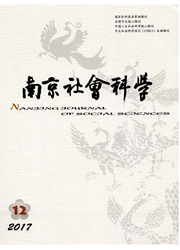

 中文摘要:
中文摘要:
本文以2014年兰州自来水苯超标事件为案例,从学术界已有的公共价值的核心概念入手,系统分析了我国经济和社会转型背景下引发公共价值冲突的根源和内在机理。研究结果表明,由于当前我国正处于快速变化的转型期,不同主体在公共管理活动中所追求的公共价值目标的不同,从而造成实践中的公共价值冲突。政府追求的公共价值是"公平公正、责任与回应性";市场追求的公共价值是"经济利润与社会责任";民间社会追求的公共价值是"自由自主与个体权利"。由于三种主体所追求的公共价值存有差异,会在特定情境下引发冲突和矛盾。要调和相互冲突的公共价值就必须实现政府、市场与民间社会三者的良性互动,构建多元主体共同参与的合作治理模式。
 英文摘要:
英文摘要:
This paper reviews the concept of "public values"and studies the causes and internal mechanism of "public values conflict"based on the case of Lanzhou tap water pollution by benzene on April 11 th,2014. The main findings of this paper are: Due to the repaid transition of China,various subjects in the public management will pursue different public values,thus will result in the potential conflicts among these values. The major public values for government are social equity,accountability and responsiveness; the major public values for the marketplace are economic profit,individual act and social responsibility; the major public values for the civil society are independence,personal rights and collective action. The differences of the public values among these three subjects will arose the conflicts and contradictions in some circumstances. In order to relieve these conflicts,we need to build up a creative collaborative governance model to accommodate the government,market,and civil society to interact with each other.
 同期刊论文项目
同期刊论文项目
 同项目期刊论文
同项目期刊论文
 期刊信息
期刊信息
